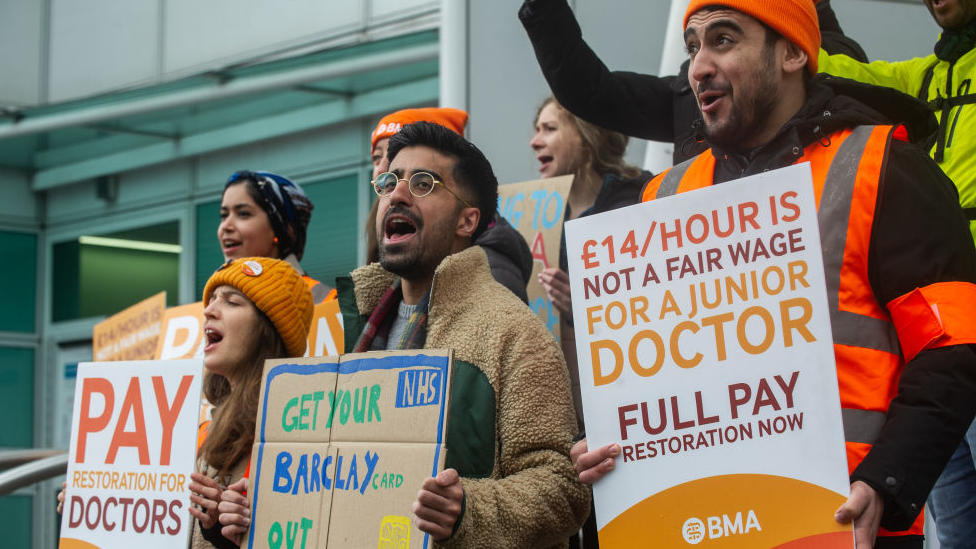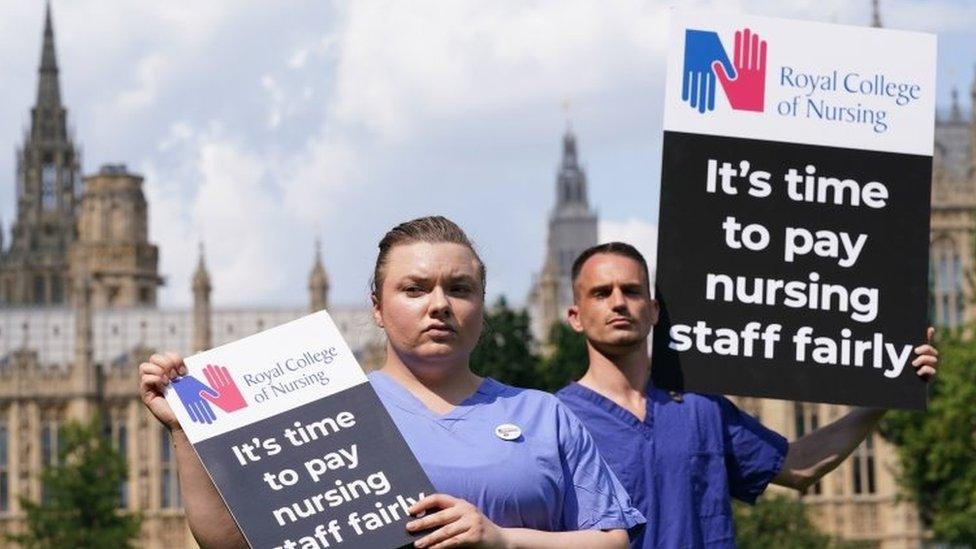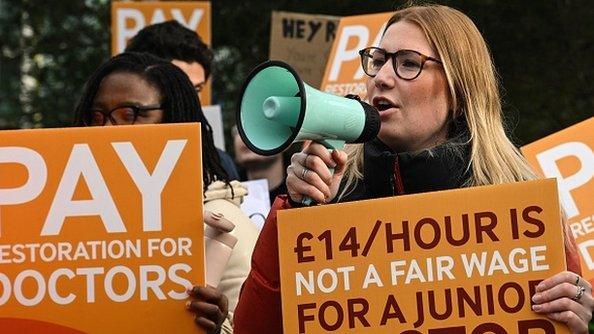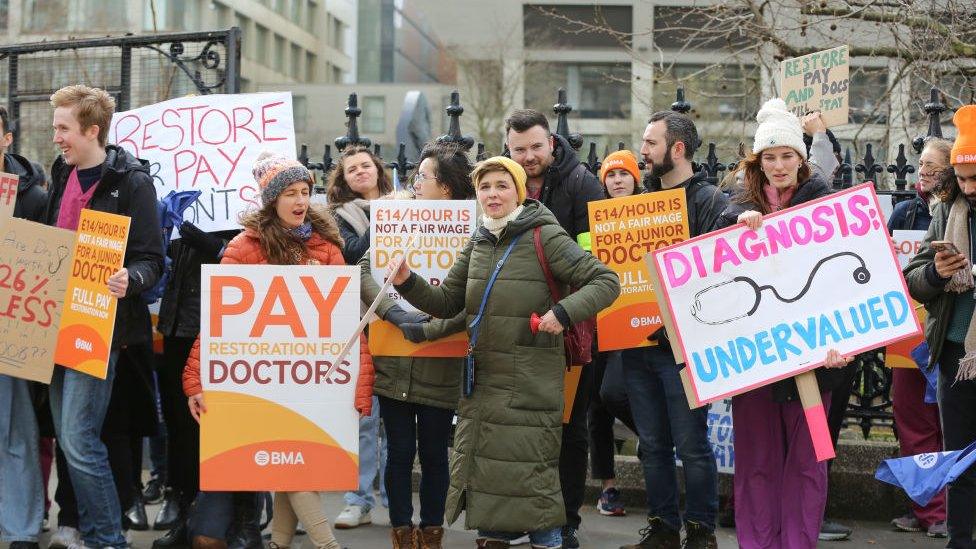Junior doctors' strike: Medical chiefs call on third party to broker talks
- Published
- comments

An independent organisation should be brought in to help broker a deal in the pay dispute between junior doctors and the government, medical leaders say.
The Academy of Medical Royal Colleges, which brings together leading doctors and surgeons, said prolonged industrial action was having a "serious impact".
Last week's strike by junior doctors in England resulted in nearly 200,000 cancelled appointments and operations.
The Department of Health said it would not involve a third party.
Calls for a 35% pay rise by junior doctors are "unreasonable", but ministers would engage constructively, the government said.
The Academy of Medical Royal Colleges said a conciliation service like Acas was needed for the sake of patients.
Its chair, Prof Dame Helen Stokes Lampard, told the BBC's Today programme: "I'm gravely concerned.
"Patients are suffering...the doctors are suffering too. It needs to be brought to a conclusion.
"Before you can even start to have negotiations you have to have preliminary talks," and those are not yet happening, she warns.
The academy helped broker a deal between junior doctors and the government in their last dispute in 2016, which was over the introduction of a new contract.
It says it now has concerns about both a lack of a solution in the current pay row and the anticipated impact on services and patients that will potentially follow any future action.
The intervention of the academy is potentially highly significant.
It brings together the most senior figures in the medical profession and usually stays out of political debates around health.
The academy statement stresses that it will not comment on the details of the junior doctors' pay claim or terms and conditions of employment - but it notes "concerns and frustration" of doctors and "intense workload pressures".
The British Medical Association (BMA), which represents junior doctors, said it had already reached out to Acas and suggested the Academy's intervention would put more pressure on the government to do the same.
The BMA said it believes working with the conciliation service gives "the most realistic chance" of ending the strike.
It came after the NHS Confederation, the body representing NHS health service trusts, had suggested that Acas should be involved. Labour this week also urged the health secretary to "swallow his pride" and call in the service to "mediate an end" to the dispute.
Acas - which receives funding from the government but is an independent public body - can play an impartial role in helping to settle matters when there is a disagreement between an employer and group of employees. Recently it has been involved in mediation relating to the Royal Mail and higher education industrial disputes.
Junior doctors - which include medical school graduates to those with many years' experience on the front line - represent 40% of the medical workforce. They are asking for a 35% pay rise - arguing their pay has been cut by 26% since 2008 once inflation is taken into account.
But the government has said the pay demand is "unreasonable in the current economic context".
More than 196,000 hospital appointments and about 20,000 operations and treatments had to be cancelled because of the most recent strike. It was the greatest number of cancellations so far in the NHS pay dispute, which has also involved nurses, hospital staff, ambulance workers and physios.
It brings the total number of appointments affected by all the strikes over the past five months to more than 500,000.
Dr Adrian Boyle, the president of the Royal College of Emergency Medicine (RCEM), described the current situation in emergency services as "really tough".
The president of the RCEM - which monitors standards of care in UK A&E departments - said there were not enough hospitals and called for capacity to be increased.
The "vast majority" of problems have been caused by "deep underlying issues" rather than strikes, he told BBC Radio 4's Today programme.
Government sources are maintaining their line that the BMA needs to row back significantly on their wage claim.
The Department of Health said: "The Health and Social Care secretary has been clear his door is open and he remains willing to engage constructively but a 35% pay rise, which would involve some junior doctors receiving £20,000, is unreasonable.
"Strike action also needs to be paused for formal talks to begin."

Are you a patient affected by upcoming strike action? Share your experiences by emailing haveyoursay@bbc.co.uk, external.
Please include a contact number if you are willing to speak to a BBC journalist. You can also get in touch in the following ways:
WhatsApp: +44 7756 165803
Tweet: @BBC_HaveYourSay, external
Please read our terms & conditions and privacy policy
If you are reading this page and can't see the form you will need to visit the mobile version of the BBC website to submit your question or comment or you can email us at HaveYourSay@bbc.co.uk, external. Please include your name, age and location with any submission.


STACEY SLEEPS OVER: Stacey Dooley visits Britain's most unusual houses
BOUND BY DEFIANCE: Daisy May Cooper stars in Rain Dogs

- Published2 May 2023

- Published17 April 2023

- Published10 April 2023

- Published14 March 2023

- Published18 May 2023